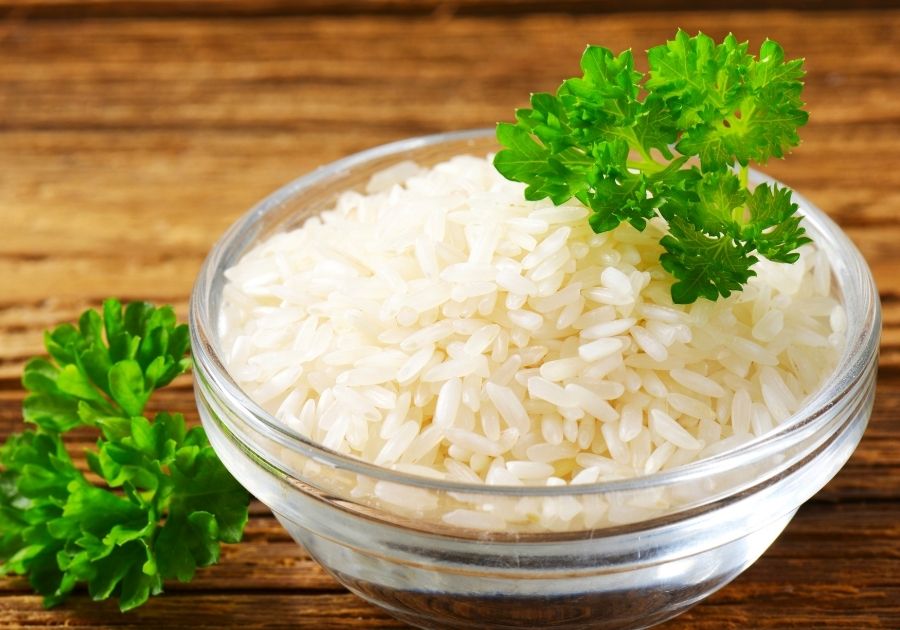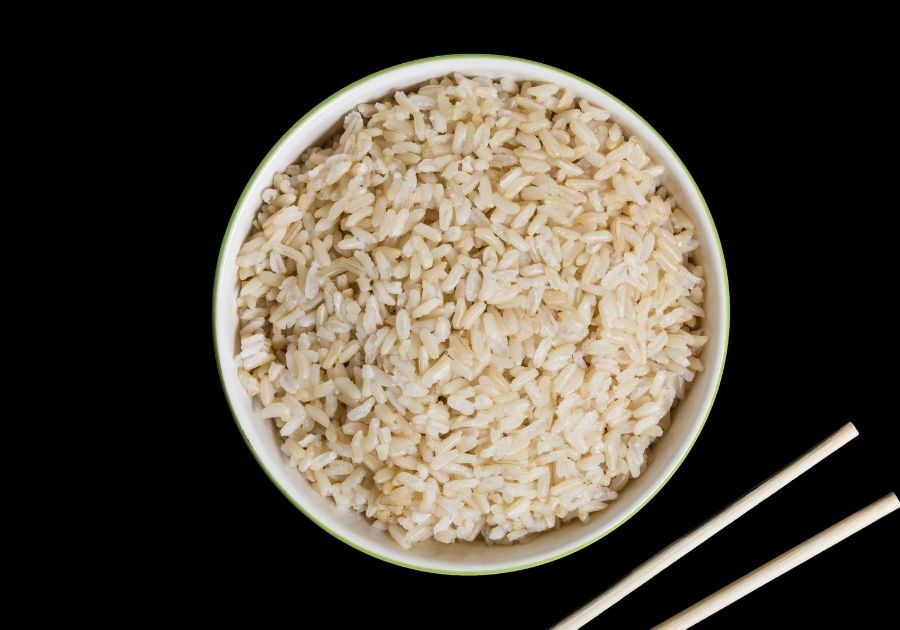Several dog owners depend on dog food and meat diet to balance their dogs’ nutrient diet.
However, recently dog owners have started branching out into varieties of other human food to feed their dogs.
Some even assume that whatever their alimentary canal can take is automatically safe to feed to their dogs.
While that notion is wrong, many dog owners are now recognizing grains as an important meal to feed their dogs mainly for their nutritional properties.
An example of such grain food is jasmine rice. But, can dogs eat jasmine rice?
This article considers the answer to this question and other important facts you need to know about feeding rice to your pup.
What is Jasmine Rice?
Jasmine rice, also known as Thai fragrant rice, is an aromatic long-grain variety of fragrant rice that is primarily grown in certain parts of Asia, majorly Thailand, Cambodia, Sultan Southern Vietnam, and Laos.
Many tend to think that jasmine rice is an improvement over white rice.
However, this is not true as jasmine rice is one of the 40,000 types of white rice.
They are quite different from the typical American long-grain white rice and has more calories, iron, fat, and carbohydrate.
Jasmine rice deriving its name from the jasmine flower shares a fragrance similar to the Jasmine flower.
When cooked, they are usually moist, soft in texture, and known to have a slightly sweet nutty flavor taste.
Can Dogs Eat Jasmine Rice?
Absolutely yes! Dogs can eat jasmine rice. However, in feeding jasmine rice to your pup, moderation needs to be applied as too much of it can be detrimental to dogs’ health.
Generally, rice are healthy grains you can feed to your dogs, and Jasmine rice is no different.
Regardless of whether it is jasmine white rice or brown jasmine rice, they contain a similar amount of calories, fiber, carbs, and other nutrients in other types of long grain rice.
Jasmine rice is very much similar to every other type of long-grain rice.
The significant difference with jasmine rice is that it gets thicker and softer when cooked and its geographical source, as jasmine rice, primarily originates from Thailand.

Below is a breakdown of the nutrient composition of 158g of Jasmine Rice
| Nutritional Info | Amount |
|---|---|
| Calories | 205 |
| Fat | 0.4g |
| Sodium | 1.6mg |
| Potassium | 55mg |
| Carbohydrates | 45g |
| Fiber | 0.6g |
| Sugars | 0.1g |
| Protein | 4.3g |
| Calcium | 1.2% |
| Iron | 11% |
Benefits of Jasmine Rice for dogs
Feeding your dog a moderate amount of jasmine rice will benefit your dog health in the following ways:
1. Healthy Carbohydrates
Jasmine rice contains plenty of healthy carbohydrates, which can provide long-term energy in dogs.
Several dog foods are packed with too many carbs, but jasmine rice provides slow-burning carbs that would offer a dog adequate energy to stay active and energized throughout the day.
2. Balanced Protein
Jasmine rice is filled with a balanced amount of protein, which dogs need for healthy muscles and cognitive functionality.
Protein is very crucial for growing puppies, and older dogs as this nutrient will help them with brain functionality and muscle and tissue repair.
There are about 4 grams of protein in every serving of jasmine rice.
3. Hydration and Water Retention
Rice generally helps keep dogs hydrated and improve their blood pressure; and jasmine rice benefits dogs in this way and more.
It also helps regulate water retention and mineral imbalances.
Aging dogs susceptible to illness resulting from water retention issues and mineral loss can tackle this illness by moderately consuming this rice.
4. Soluble Fiber
Jasmine rice contains a reasonable amount of soluble fiber, which can help prevent and fight against diarrhea in dogs and improve their digestive system.
5. Vitamin
Vitamin B is essential in a dog’s diet because dogs cannot independently make them, and jasmine rice contains a healthy amount of vitamin B.
Is Jasmine Rice Safe for Dogs?

As with all types of food, everything needs to be consumed in moderation.
While jasmine rice is packed with several nutritional benefits, dog owners should be aware of the risks.
The following are possible risks associated with dogs consuming an excess amount of jasmine rice.
1. High percentage of carbohydrate
Jasmine rice contains a lot of carbohydrates, and dogs do not need too much carbohydrates.
Notwithstanding, the problem lies in the source of carbohydrates.
Carbohydrates in jasmine rice come from starch, meaning starchy carbs.
Starch has a high glycemic index which poses a diabetes risk to dogs when excessively consumed.
2. High glycemic index
As with all types of rice, jasmine rice is high in glycemic index, meaning it has a higher rate of spiking blood sugar in dogs.
This doesn’t necessarily mean that a dog suffering from diabetes cannot eat jasmine rice. However, it must be fed sparingly.
Dogs free from diabetes should be fed only a moderate amount of jasmine rice.
3. Allergy
It is unusual for dogs to be allergic to white rice or jasmine rice; still, this doesn’t mean it can’t happen.
If you notice your dog losing hair or starting to get itchy after eating jasmine rice, chances are your dog is allergic to it.
If your dog shows any allergic reaction after feeding it jasmine rice, don’t hesitate to take it to your veterinarian.
Is jasmine rice and white rice the same?
White jasmine rice is similar to typical white rice but not the same with it.
Most jasmine white rice are highly processed, resulting in the loss of it important nutrients.
Natural grain varieties of jasmine rice are colored from red, brown to black and are much healthier options than jasmine white rice.
Can I give my dog jasmine rice for diarrhea?
Absolutely yes! Jasmine rice can help your dogs slowly recover from diarrhea, especially when served along with chicken broth.
Is jasmine rice bland?
White rice is bland but slightly sweet in taste, while jasmine rice is also reasonably bland but also has a nutty flavor taste.
Can jasmine rice cause constipation in dogs?
No. Jasmine rice does not cause constipation in dogs. That said, it contains several nutrients and fiber that can prevent you pup from having constipation.
Can I feed jasmine rice to overweight dogs?
Jasmine rice helps reduce weight in overweight dogs.
However, you need to keep an eye on the amount you feed to your pup, as too much much can be bad for your dog’s health.
Bottom Line: Can Dogs Have Jasmine Rice?
Dogs can eat jasmine rice, but in moderation. Feeding your pup with brown or jasmine white rice weekly is a sure healthy boost.
You should do well not to feed spicy cooked jasmine rice to dogs, and it is best not to feed it to your pup as a sole meal but rather accompany it with other food.
Jasmine rice should be more of a supplemental meal to dogs.
You May Also Like:
Can Dogs Eat Hummus? What About Chickpeas?







